South Korea has transformed into a global café powerhouse, elevating coffee culture to an art form that goes far beyond simply serving caffeine. Korean cafés have become architectural showcases, cultural gathering spaces, and Instagram destinations that often overshadow traditional tourist attractions.
The country’s café scene blends precision coffee craftsmanship with innovative design concepts, creating spaces that range from minimalist concrete galleries to whimsical-themed environments that transport visitors to entirely different worlds. For travelers who find themselves planning itineraries around exceptional coffee experiences rather than museum visits, South Korea offers an unparalleled playground.
Here is a list of 15 extraordinary café experiences across South Korea that justify skipping conventional sightseeing.
Explore Seoul’s Café Alleys in Yeonnam-dong
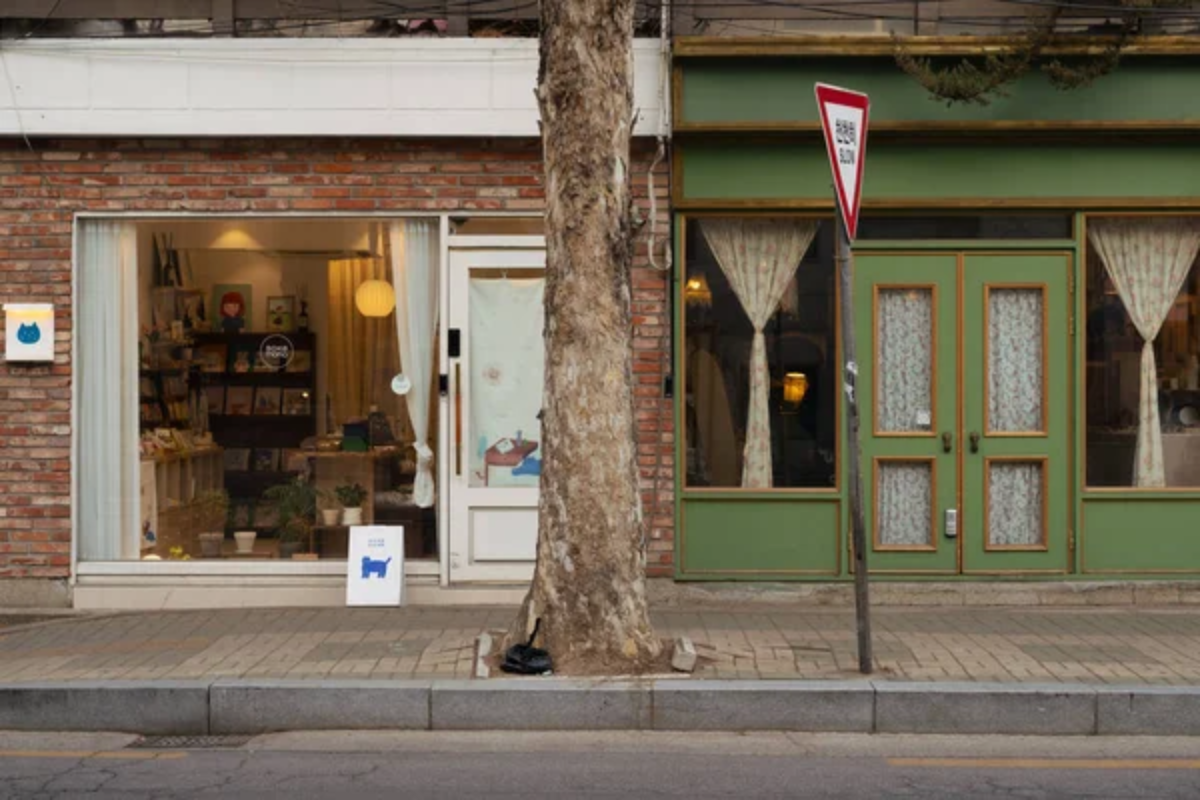
This neighborhood next to Hongdae transformed from a quiet residential area into Seoul’s most concentrated café district after the elevated Gyeongui Line was converted into a linear park. Dozens of independent cafés line the streets surrounding the green space, each with distinct personalities, ranging from industrial-chic roasters to homey bakery-cafés serving grandma-inspired desserts.
The area particularly excels in spaces that blur indoor-outdoor boundaries, with many establishments featuring retractable walls opening to small gardens or courtyards. Standouts include Understand Avenue, where coffee is served in a renovated home with furniture handcrafted by the owner, and Café Soma, which specializes in single-origin beans roasted on-site.
Visit a Dog Café in Myeongdong
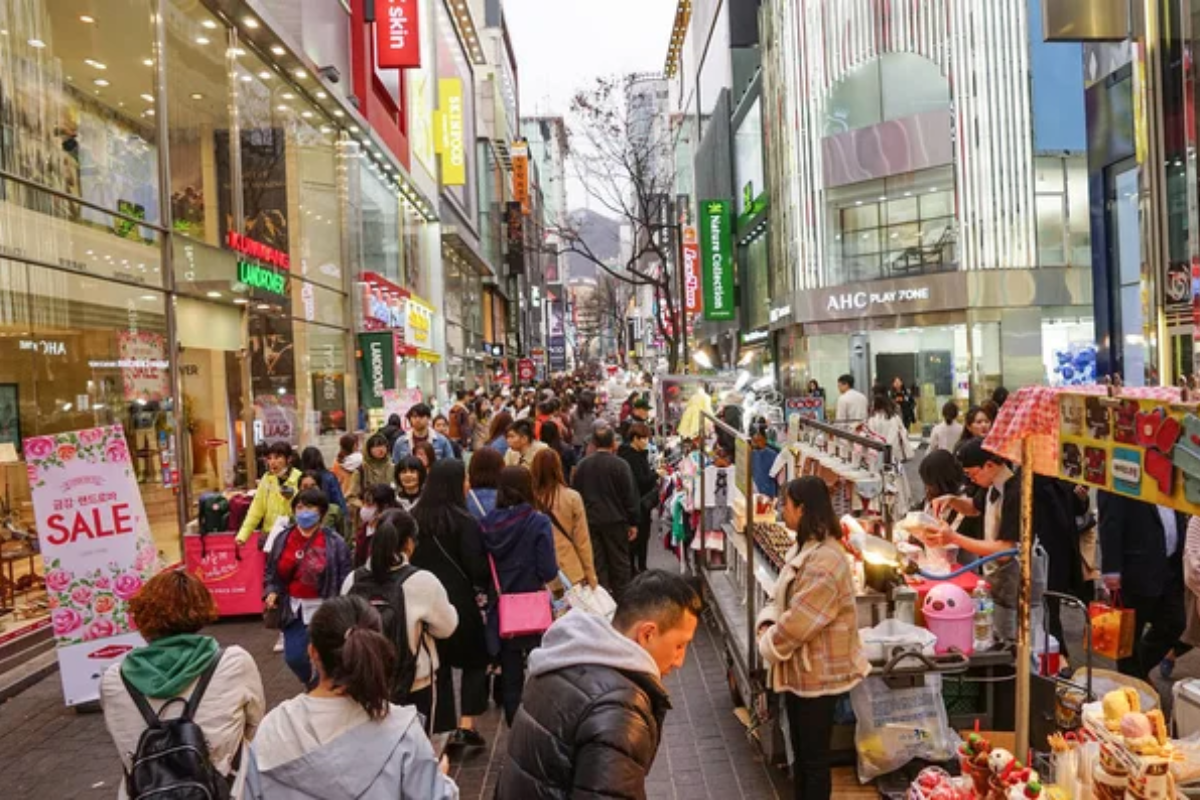
Animal cafés reached their apex in South Korea, with Seoul offering specialized venues featuring everything from sheep to raccoons. The most refined versions remain the dog cafés, where purebred pooches roam freely among patrons enjoying quality coffee and pastries.
Unlike many tourist-oriented animal cafés elsewhere in Asia, Seoul’s establishments maintain exceptional cleanliness standards and prioritize animal welfare alongside customer experience. Bau House in Myeongdong stands as the pioneer in this category, operating for over 15 years with separate areas for large and small breeds, while True Friends Café specializes in rescued dogs seeking permanent homes.
Like Travel Pug’s content? Follow us on MSN.
Discover Hanok Cafés in Bukchon

Traditional Korean houses (hanok), with their distinctive curved roofs and wooden beam construction, have found new life as atmospheric cafés throughout historic neighborhoods. Bukchon Hanok Village, already a popular destination for cultural sightseeing, contains several exceptional examples where centuries-old architecture has been thoughtfully adapted for modern café use.
These establishments often specialize in traditional Korean beverages like omija tea or sikhye alongside carefully prepared coffee. The second-floor window seats at Cha Masineun Tteul provide framed views of tiled rooftops against Seoul’s modern skyline, while Hibi Coffee serves exceptional pour-overs in pottery handmade by the owner.
Experience Dessert Cafés in Garosu-gil
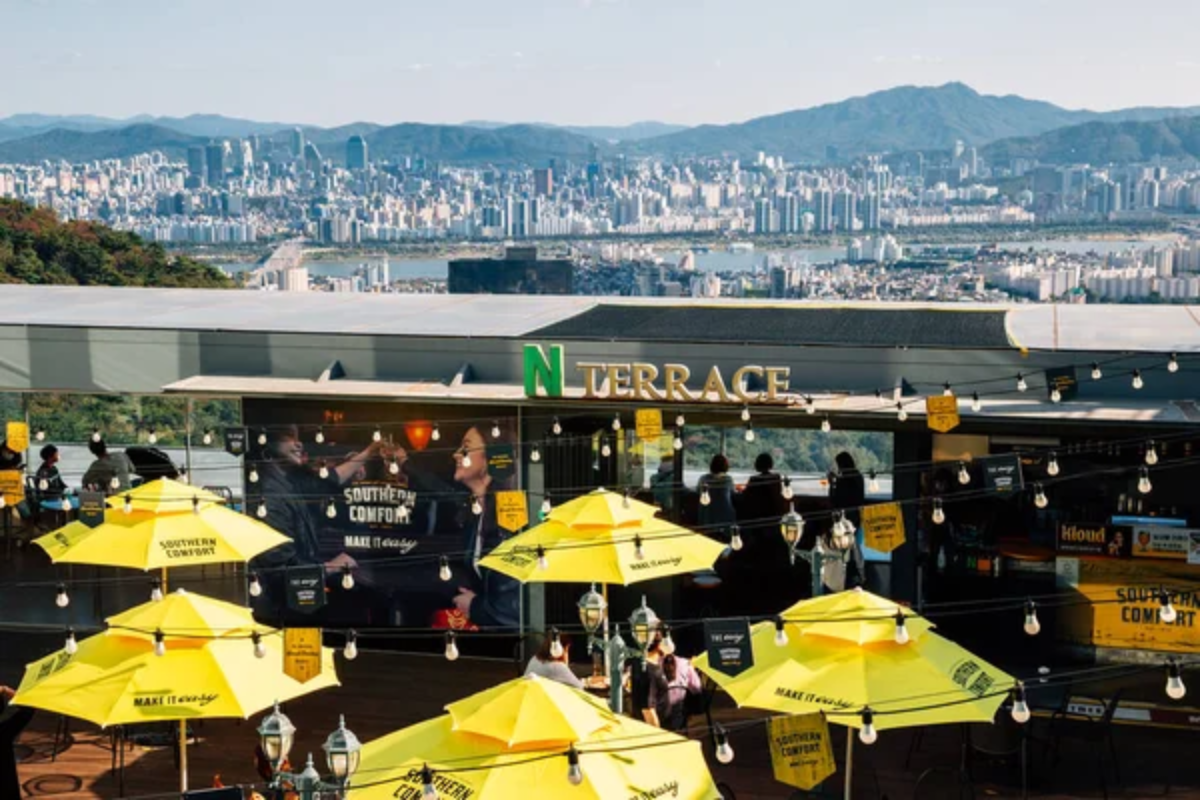
Seoul’s fashion-forward Garosu-gil district specializes in cafés where elaborate desserts take center stage alongside coffee. These establishments elevate sweet treats to artistic expressions, with many owners having trained at prestigious pastry schools in France or Japan before returning to create Instagram-worthy creations.
C.Through became internationally famous for its “cream art” lattes featuring intricate designs that transcend typical latte art, while Dore Dore made rainbow cake a national obsession. New establishments continually raise the bar—aiming to create the next viral dessert sensation that will draw lines of patient customers willing to wait hours for the perfect sweet-and-coffee pairing.
Visit Busan’s Ocean View Cafés
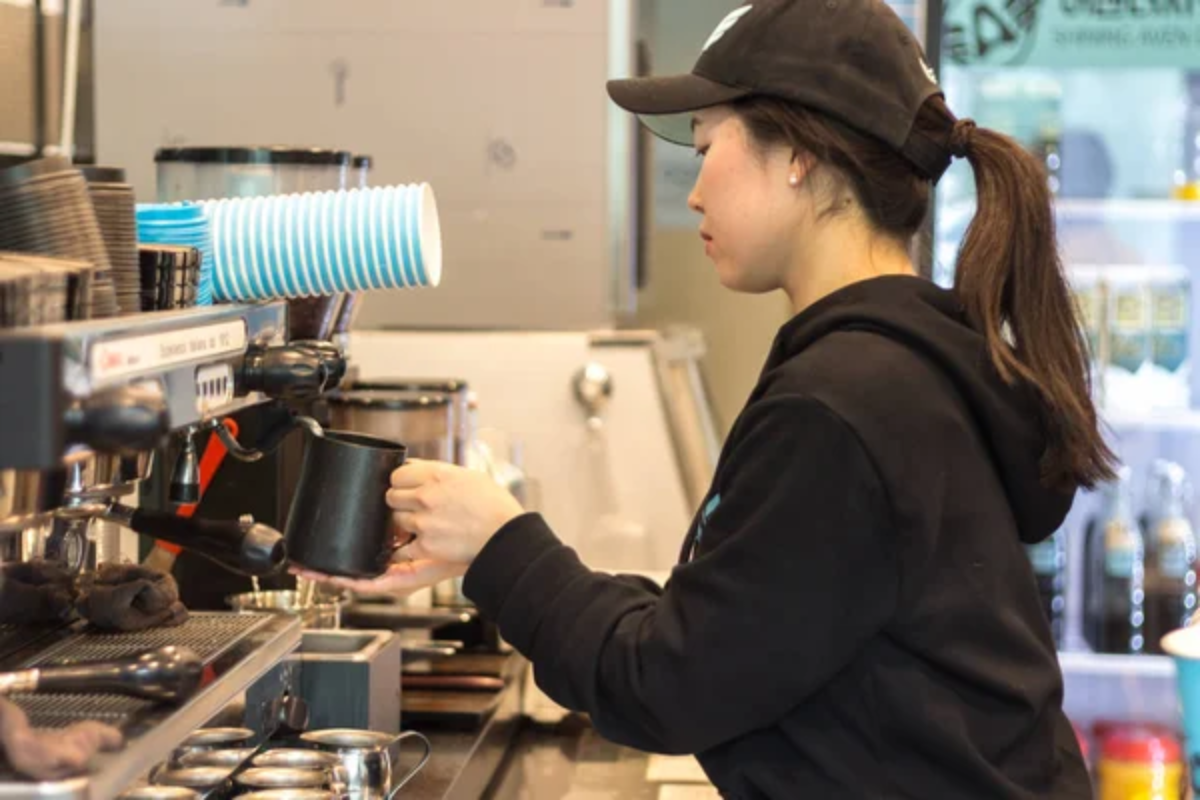
Korea’s second-largest city features a dramatically different café culture than Seoul, with coastal locations offering panoramic ocean vistas. The hillside neighborhoods of Haeundae and Gwangalli contain dozens of cafés constructed specifically to maximize blue water views, often featuring floor-to-ceiling windows or rooftop terraces.
These spaces typically charge premium prices for drinks but compensate with unlimited time policies and prime seating overlooking Korea’s most famous beaches. The industrial-chic Café Blue Marine occupies a converted warehouse with shipping container details, while Waveon Coffee features a cantilevered glass box structure extending dramatically toward the sea, creating the illusion of floating above the waves.
Like Travel Pug’s content? Follow us on MSN.
Try a Study Café in Gangnam
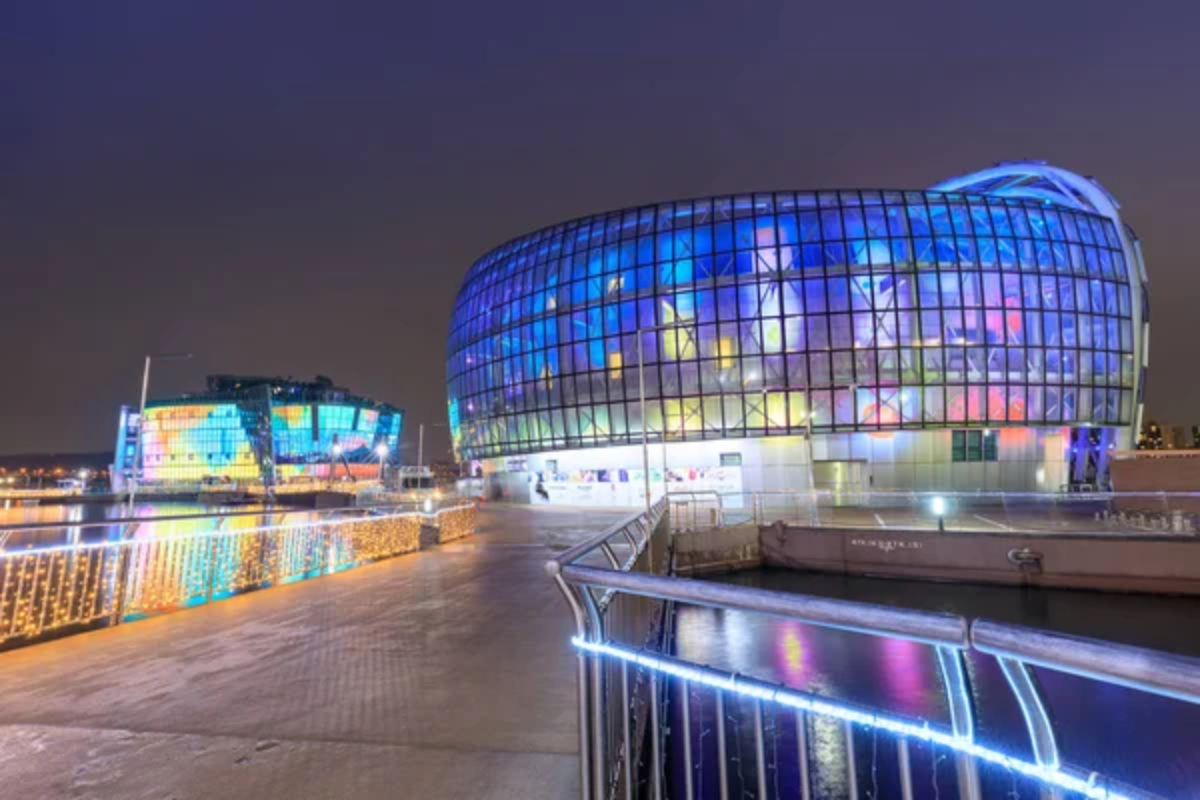
South Korea’s intense academic culture spawned a unique café variant—dedicated spaces designed specifically for productivity rather than socialization. These “study cafés” offer privacy-focused environments with individual cubicles, high-speed internet, unlimited drinks, and strict noise controls.
Remarkably, many have evolved into tourist attractions themselves, with some travelers fascinated by this distinctly Korean approach to communal yet isolated work. The multi-story Konggang Study Café in Gangnam exemplifies the concept at its most refined, with tiered membership options offering increasingly premium facilities, including shower rooms and sleeping pods for marathon study sessions.
Explore Jeju Island’s Nature-Integrated Cafés
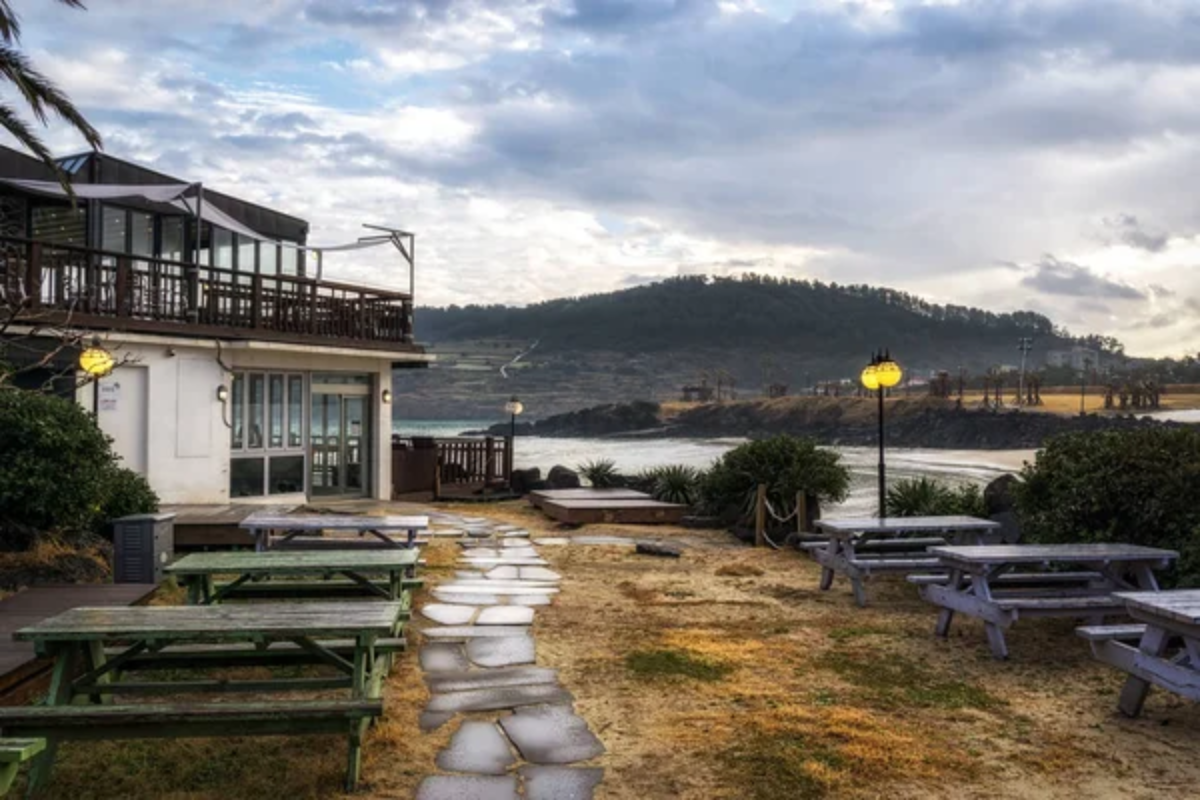
Korea’s volcanic vacation island features extraordinary cafés designed to frame and complement the dramatic natural landscape. These architectural showcases typically occupy premium coastal or mountainside locations, with designs emphasizing harmony between built environments and Jeju’s unique ecology.
Monsant Café sits perched on black volcanic cliffs with floor-to-ceiling windows directly above crashing waves, while Café Seorim on Mount Halla features viewing platforms among ancient cedar trees. The island’s café architects particularly excel at creating sheltered outdoor spaces where visitors can enjoy Jeju’s famous tangerine-flavored desserts while protected from the island’s notoriously unpredictable weather.
Attend a Latte Art Class in Ikseon-dong
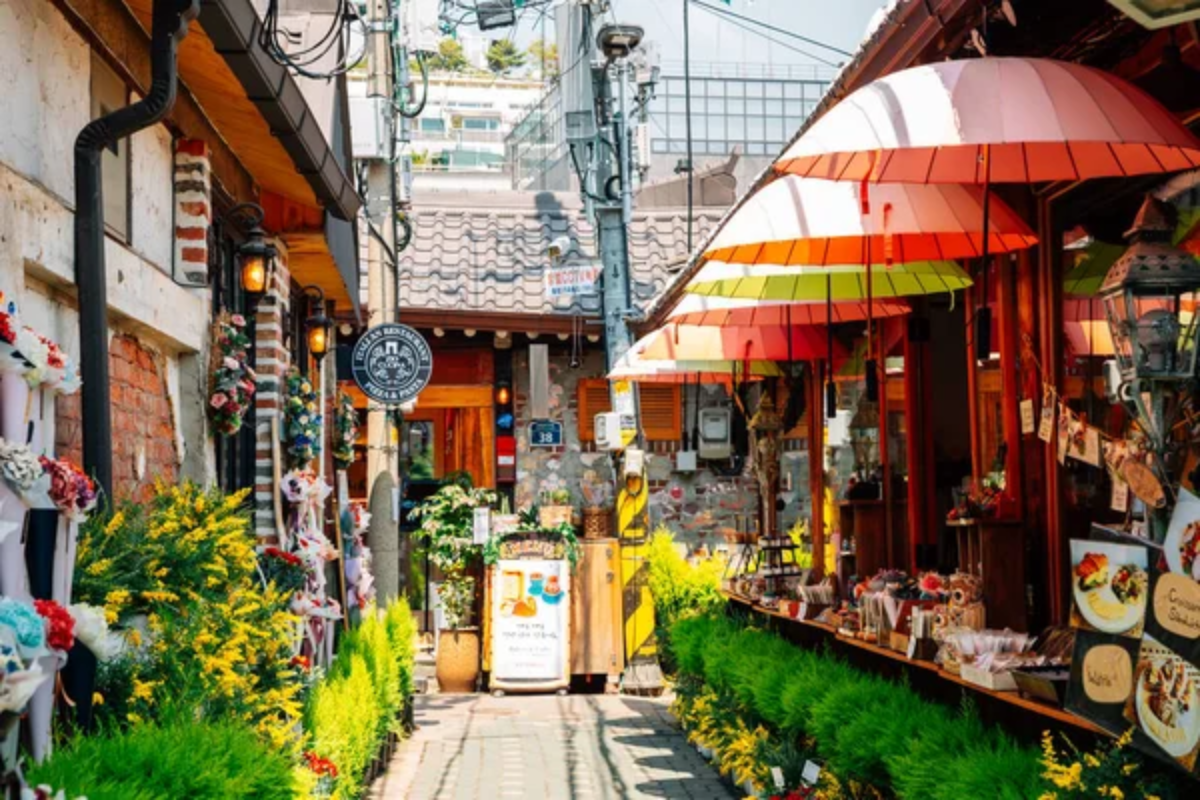
Beyond merely consuming excellent coffee, many Korean cafés now offer hands-on classes where visitors can learn barista techniques from championship-winning instructors. The historic Ikseon-dong neighborhood—filled with renovated traditional houses—contains several establishments offering courses in English specifically catering to coffee-loving tourists.
Fritz Coffee Company conducts two-hour workshops covering basic extraction principles and simple latte art techniques, while Coffee Montage offers more advanced classes focused on creating elaborate designs like three-dimensional bears and tulips that have become social media sensations. Most courses include take-home tools and freshly roasted beans as part of the package.
Like Travel Pug’s content? Follow us on MSN.
Visit Café Street in Jeonju Hanok Village
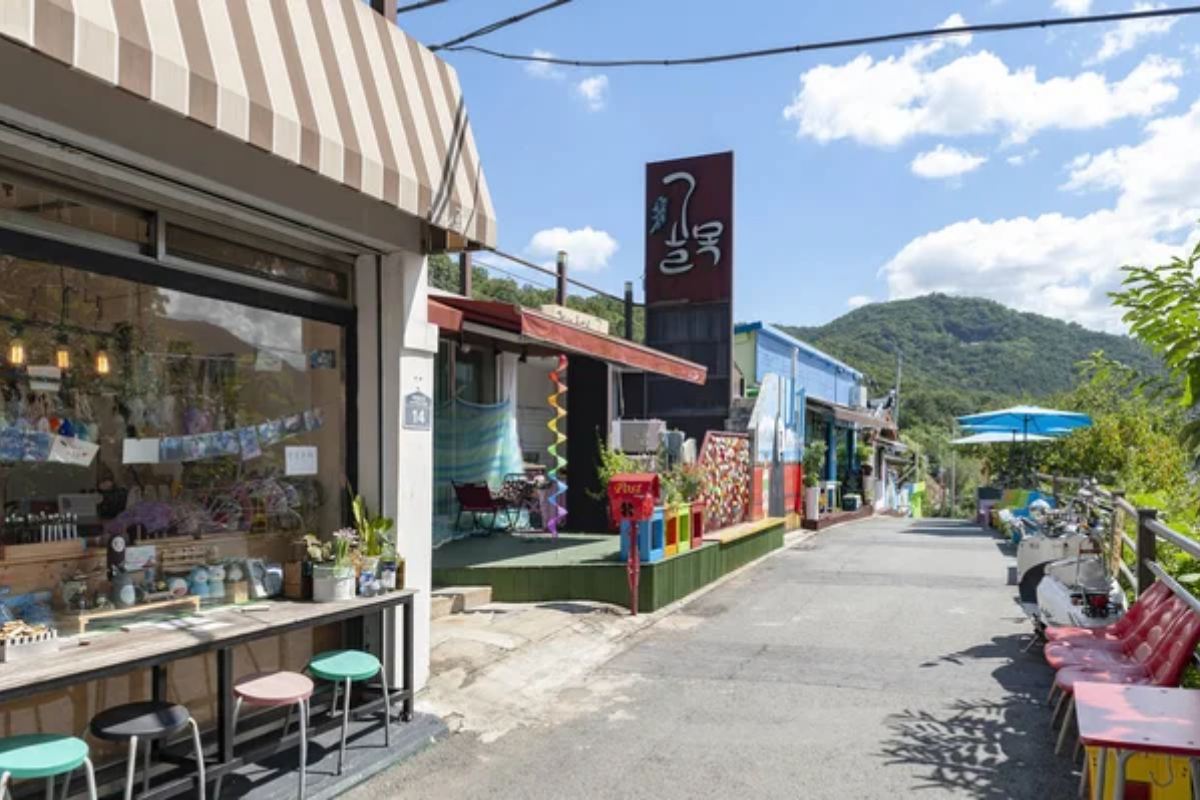
The traditional city of Jeonju offers a unique café scene where historical preservation meets contemporary coffee culture. The edges of the famous hanok village contain a densely packed “café street” where establishments compete to create the most photogenic traditional-modern fusion interiors.
These cafés specialize in incorporating local specialties like Jeonju’s famous hanji (handmade paper) and traditional tea ceremonies into contemporary café experiences. The multi-level Eungam offers traditional floor seating beside windows overlooking ancient tiled roofs, while Café Yetchatjip serves locally-grown green tea prepared through both traditional and modern extraction methods alongside handcrafted rice cakes.
Experience Book Cafés in Seochon
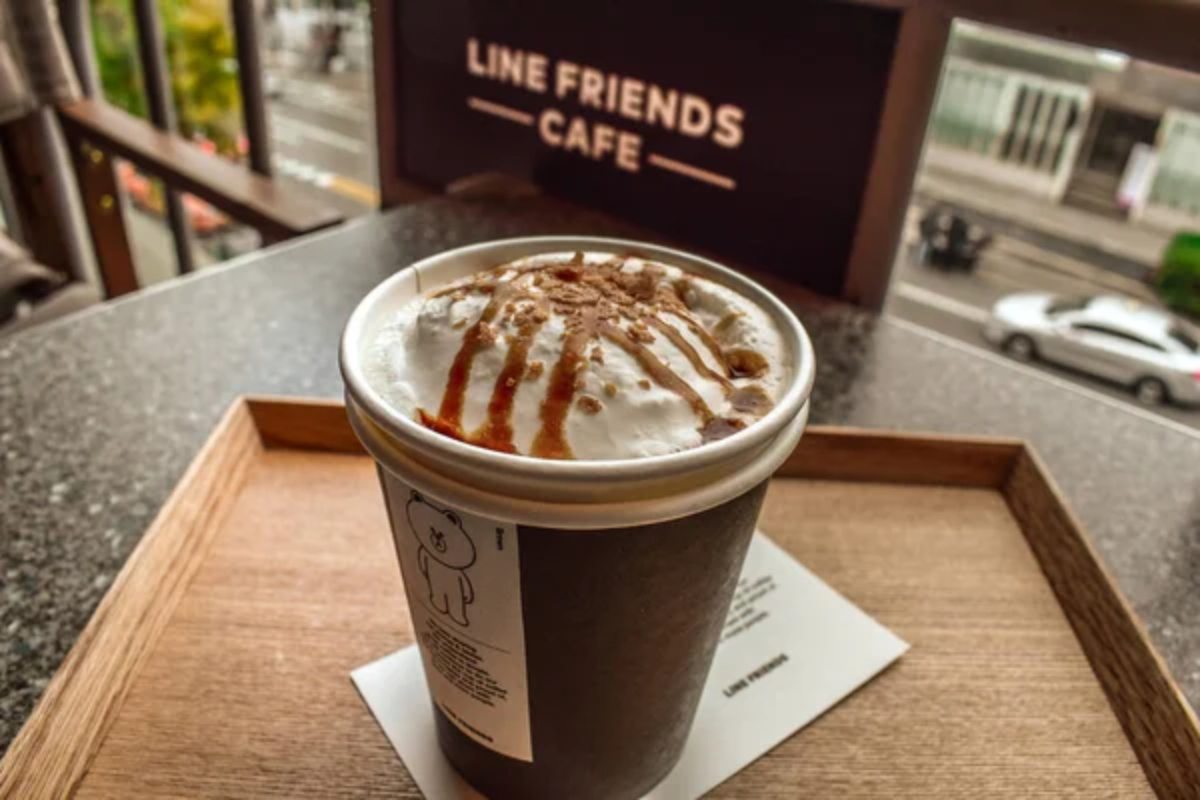
Korea’s unique approach to literary cafés goes beyond merely offering books to browse, creating immersive environments where design, beverage programs, and carefully curated collections collectively enhance the reading experience. Seoul’s historic Seochon neighborhood contains exceptional examples reflecting various literary café interpretations—from minimalist spaces emphasizing focused reading to socially oriented venues hosting regular author events.
Daeo Bookshop combines a carefully preserved 1950s Korean bookstore with contemporary coffee service, while Arc.N.Book features dramatically lit floating bookshelves hovering above communal reading tables where patrons frequently spend entire days lost in books and contemplation.
Try Specialty Korean Tea Cafés in Insadong
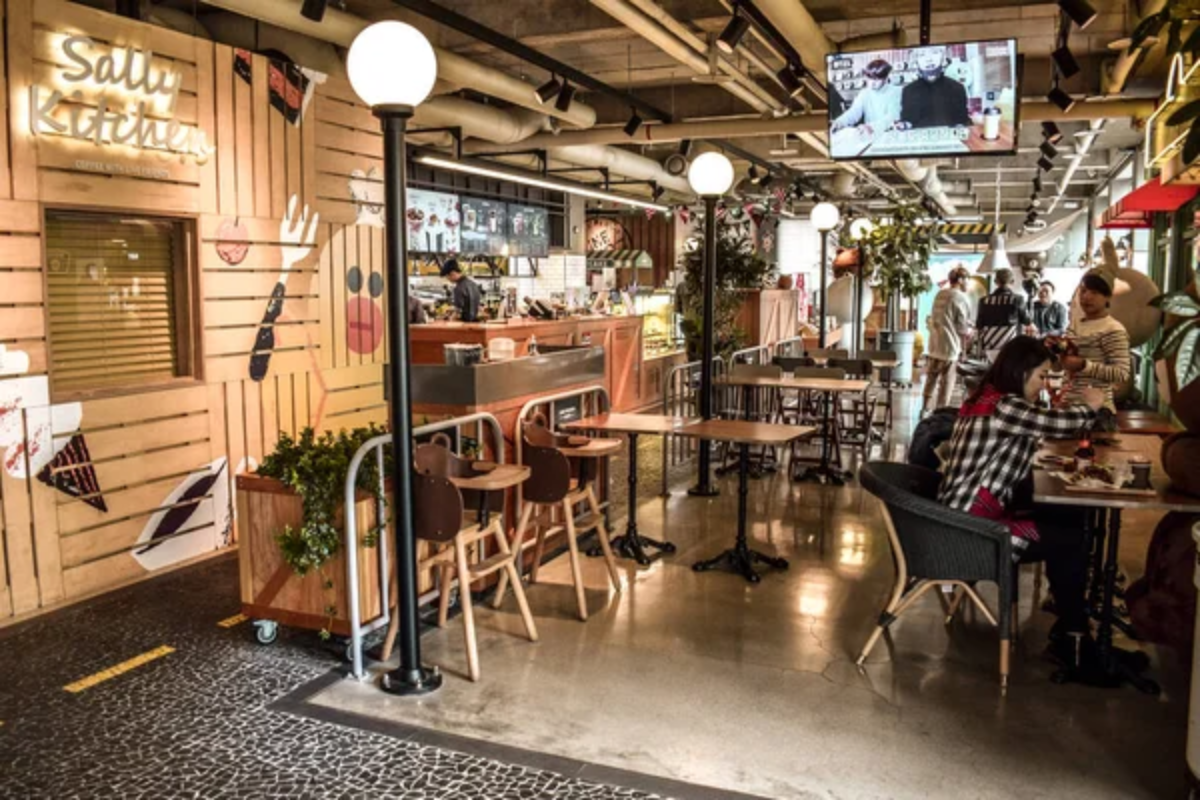
While coffee dominates Korea’s contemporary café landscape, a parallel movement has revitalized traditional tea culture with modern sensibilities. The historic Insadong district specializes in tea-focused cafés where traditional Korean beverages receive the same meticulous preparation and presentation standards found in third-wave coffee establishments.
These spaces often occupy restored historical buildings where contemporary minimalism highlights traditional ceramic serving vessels. Dawon offers tasting flights of single-estate Korean green teas paired with traditional confections, while Beautiful Tea Museum combines an educational institution with a working café demonstrating how traditional beverages remain relevant in contemporary Korean culture.
Like Travel Pug’s content? Follow us on MSN.
Visit Drive-Through Ocean Cafés in Gangneung
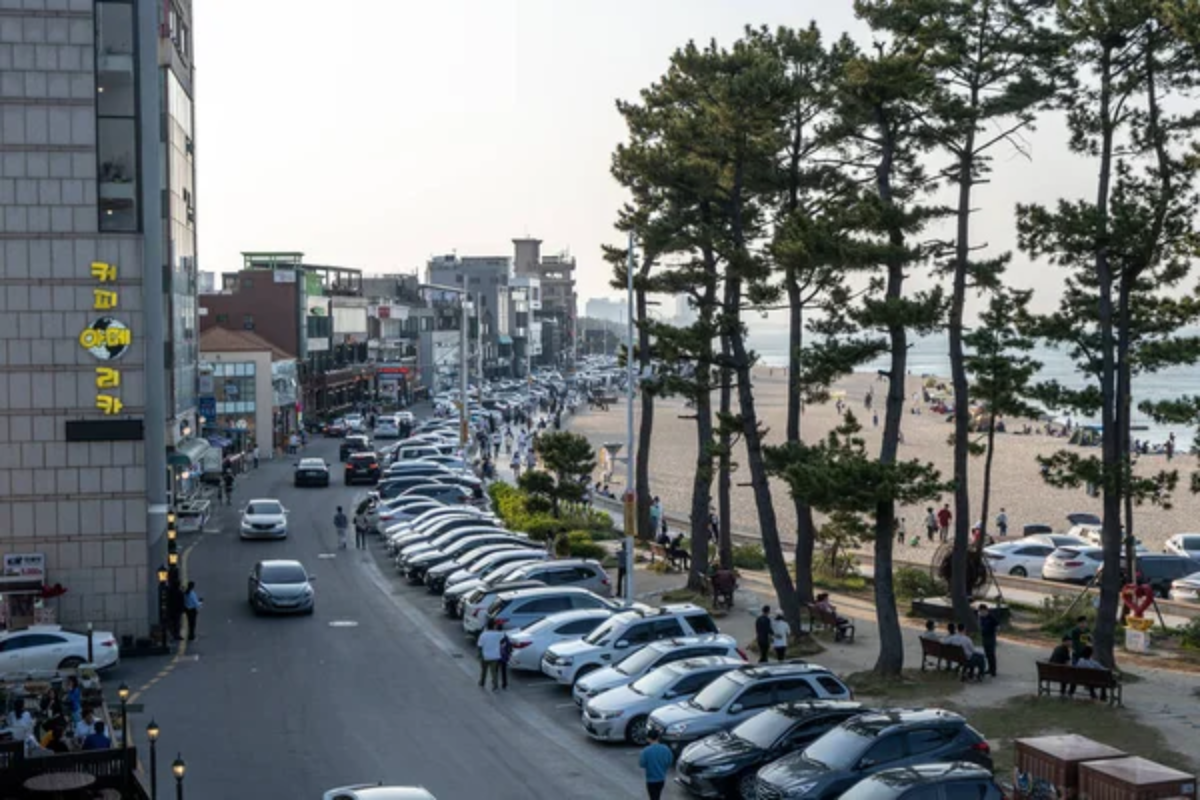
Korea’s eastern coastal city gained international recognition for its unique “coffee highway”—a stretch of oceanfront road lined with architecturally stunning drive-through cafés offering panoramic sea views. These establishments feature elaborate construction, allowing customers to enjoy coffee in their vehicles while positioned dramatically close to crashing waves.
Gangneung’s café architects pioneer increasingly innovative approaches to frame the coastal landscape through windshields, with some establishing platforms that seemingly place vehicles directly above the water. Bohemian Roasters occupies a converted shipping container cantilevered over seaside cliffs, while Terarosa’s flagship location features a drive-through lane passing through a tunneled portion of their award-winning concrete structure.
Experience Museum Cafés in Heyri Art Village
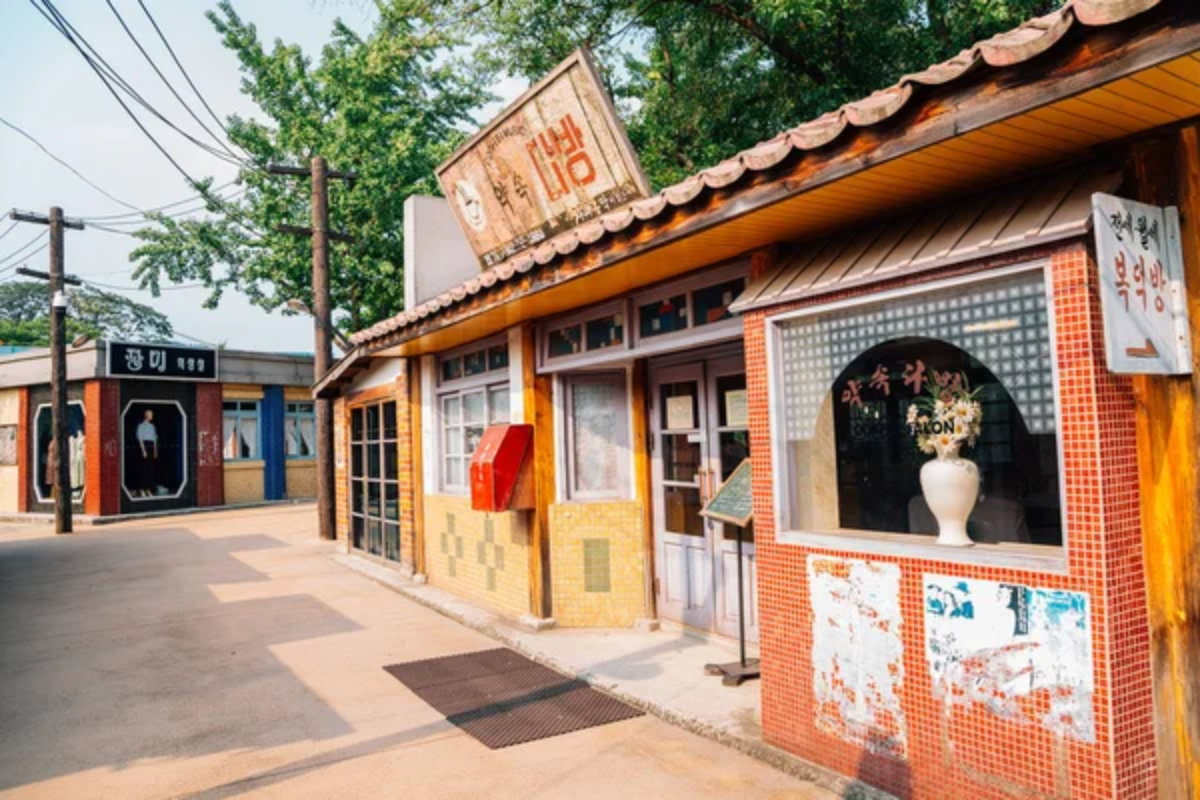
The planned cultural community of Heyri outside Seoul features dozens of museums, galleries, and performance spaces—each required by community by laws to include public café spaces designed by notable architects. This unique requirement created an extraordinary concentration of café environments where beverage programs complement their host institutions’ artistic missions.
The café at Museum SAN—designed by renowned architect Tadao Ando—features concrete counters that appear to float above reflective water features, while Gallery White Block’s rooftop café offers beverages amid sculptural installations with views toward North Korea across the DMZ.
Try a Rooftop Garden Café in Seongsu-dong
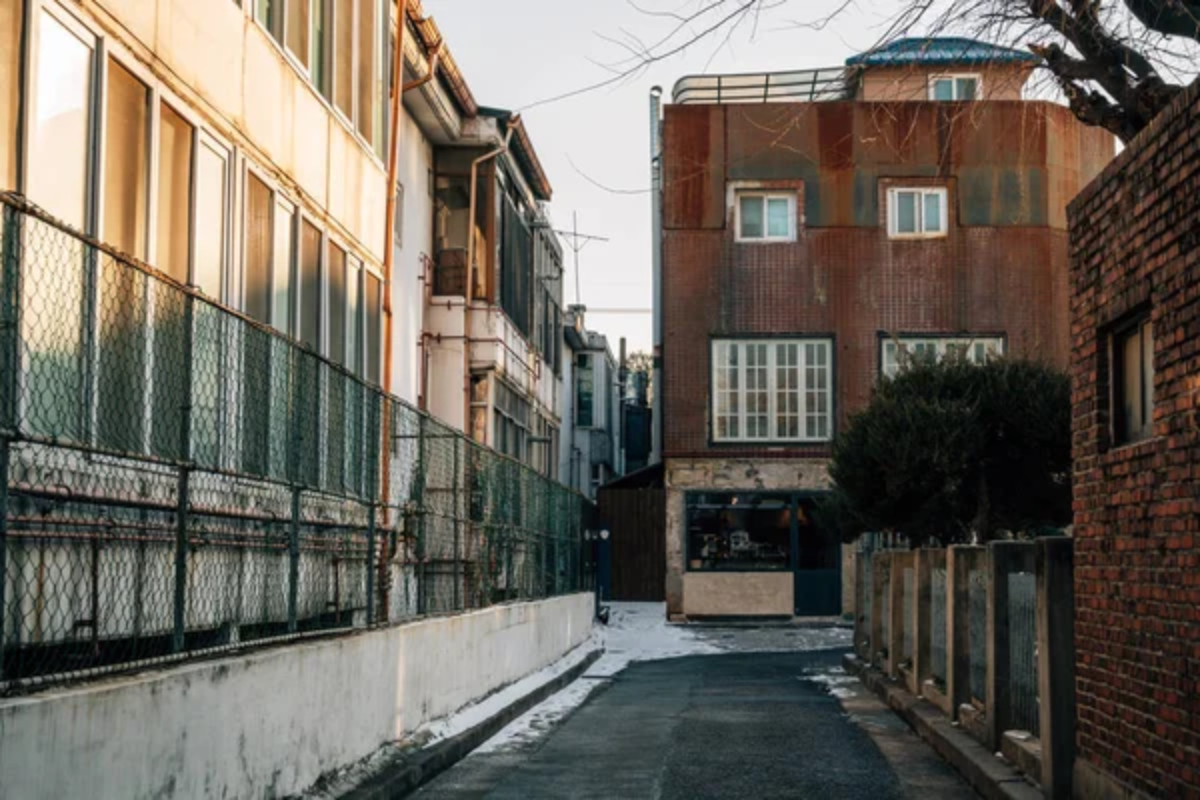
Seoul’s former industrial district transformed into a creative hub featuring cafés that pioneer sustainable urban design through extensive vertical greenery. These establishments convert former factory rooftops into lush garden environments where coffee service happens amid vegetable gardens and apiary installations.
Café owners in the district frequently collaborate with urban agriculture experts to create productive green spaces that supply ingredients for café menus while providing rare natural environments within the dense urban landscape. Daelim Warehouse features a working farm supplying its kitchen with over thirty vegetable varieties, while Onion Café’s rooftop garden includes educational components explaining Seoul’s evolving relationship with urban nature.
Like Travel Pug’s content? Follow us on MSN.
Visit Theme Cafés in Hongdae
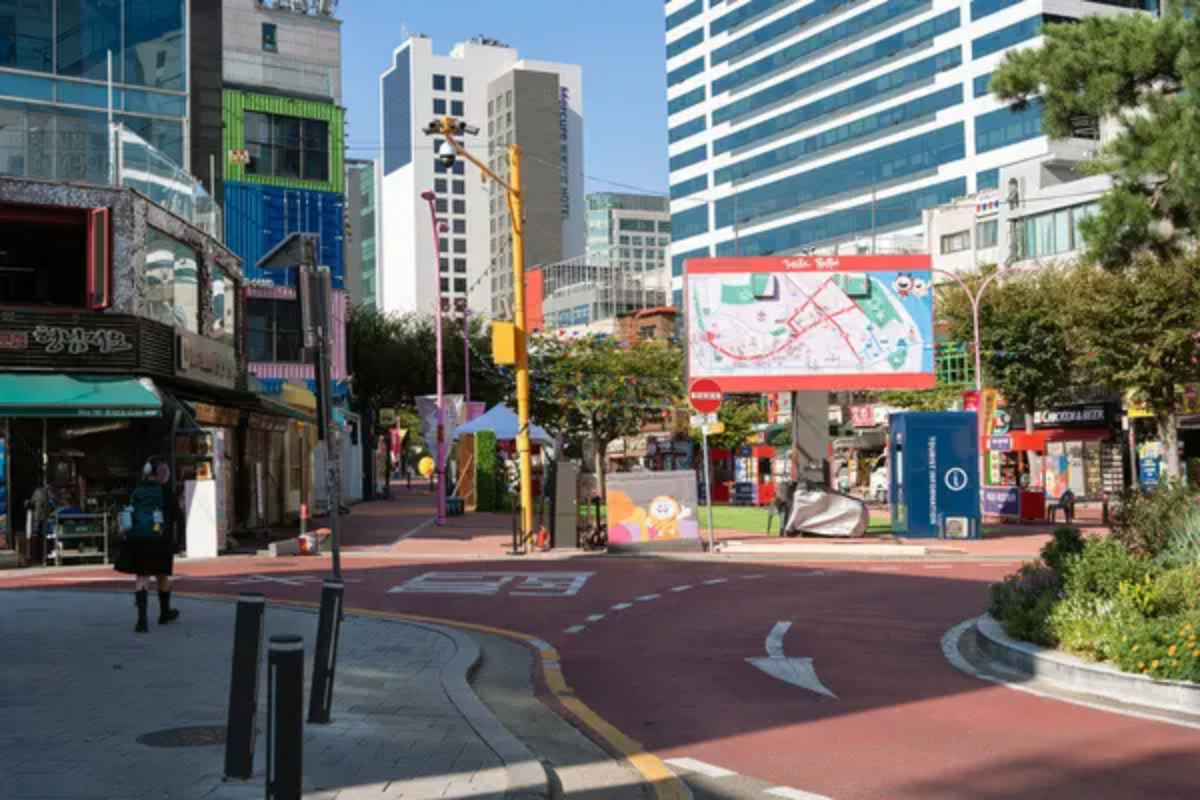
Korea’s university districts—particularly Seoul’s Hongdae area—contain the world’s highest concentration of elaborate theme cafés where immersive environments transport visitors to alternative realities. While some concepts appear gimmicky at first glance, many Hongdae establishments achieve remarkable depth through obsessive attention to detail and surprising quality beverage programs.
Themed spaces range from childhood nostalgia to elaborate fantasy worlds based on popular culture. Meerkat Café lets visitors interact with free-roaming desert animals in a carefully controlled environment, while Thanks Nature Café pioneered the animal café trend with its friendly resident sheep.
For literary enthusiasts, Harry Potter-inspired 943 Kings Cross features remarkably accurate recreations of settings from the popular series.
A Caffeinated Journey
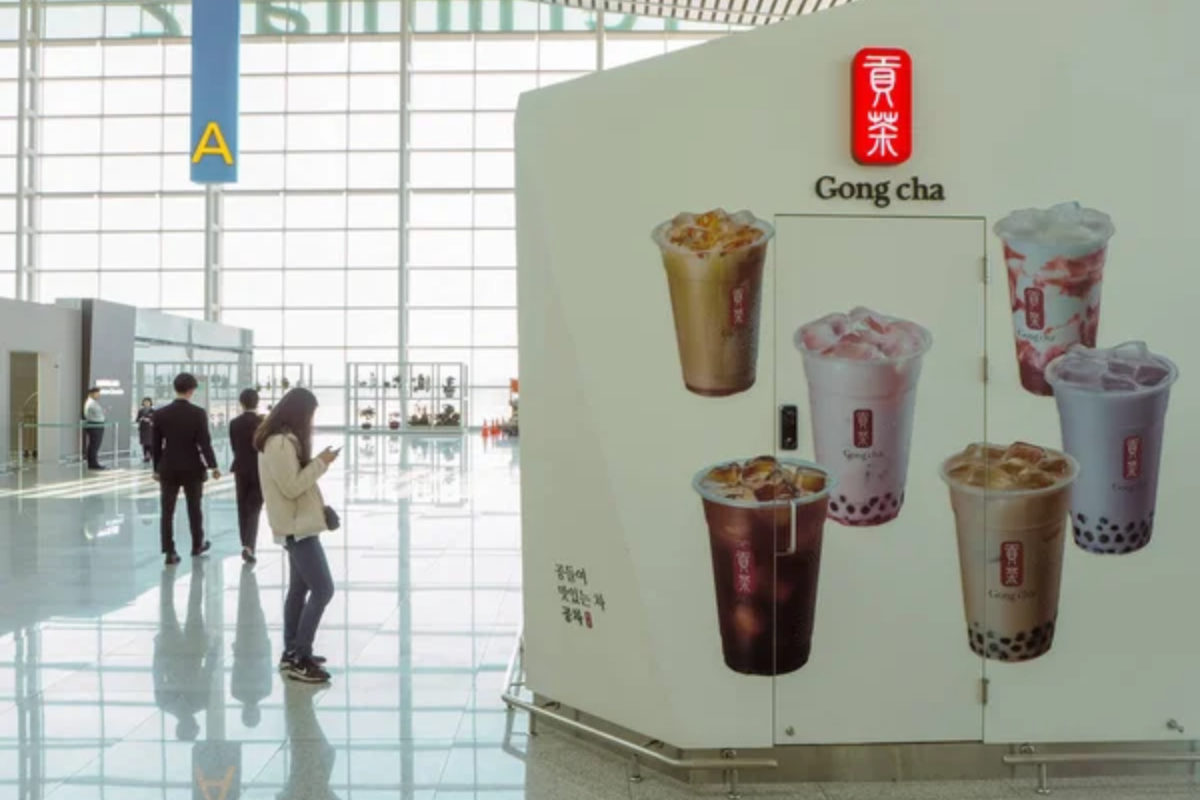
South Korea’s café culture stands among the world’s most innovative, combining technical coffee excellence with boundary-pushing design concepts that transform simple refreshments into memorable experiences. What makes Korean cafés particularly special is their constant evolution—pushing beyond trends toward ever more creative interpretations of what a café can be.
For travelers willing to build itineraries around exceptional coffee spaces rather than traditional tourist sites, South Korea offers an unparalleled journey through ambitious environments where every detail—from cup design to architectural concept—contributes to experiences that transcend simple caffeine delivery to become genuine cultural expressions.
More from Travel Pug

- Cities Growing so Fast You Won’t Recognize Them in 10 Years
- 13 Destinations Where Tourists Regularly Regret Their Trip
- 20 Obscure WWII Sites Even History Buffs Don’t Know About
- 10 Under-the-Radar Mountain Towns That Are Both Affordable and Beautiful
- Remote Villages in Europe Where You Can Live for Free in Exchange for Work
Like Travel Pug’s content? Follow us on MSN.
